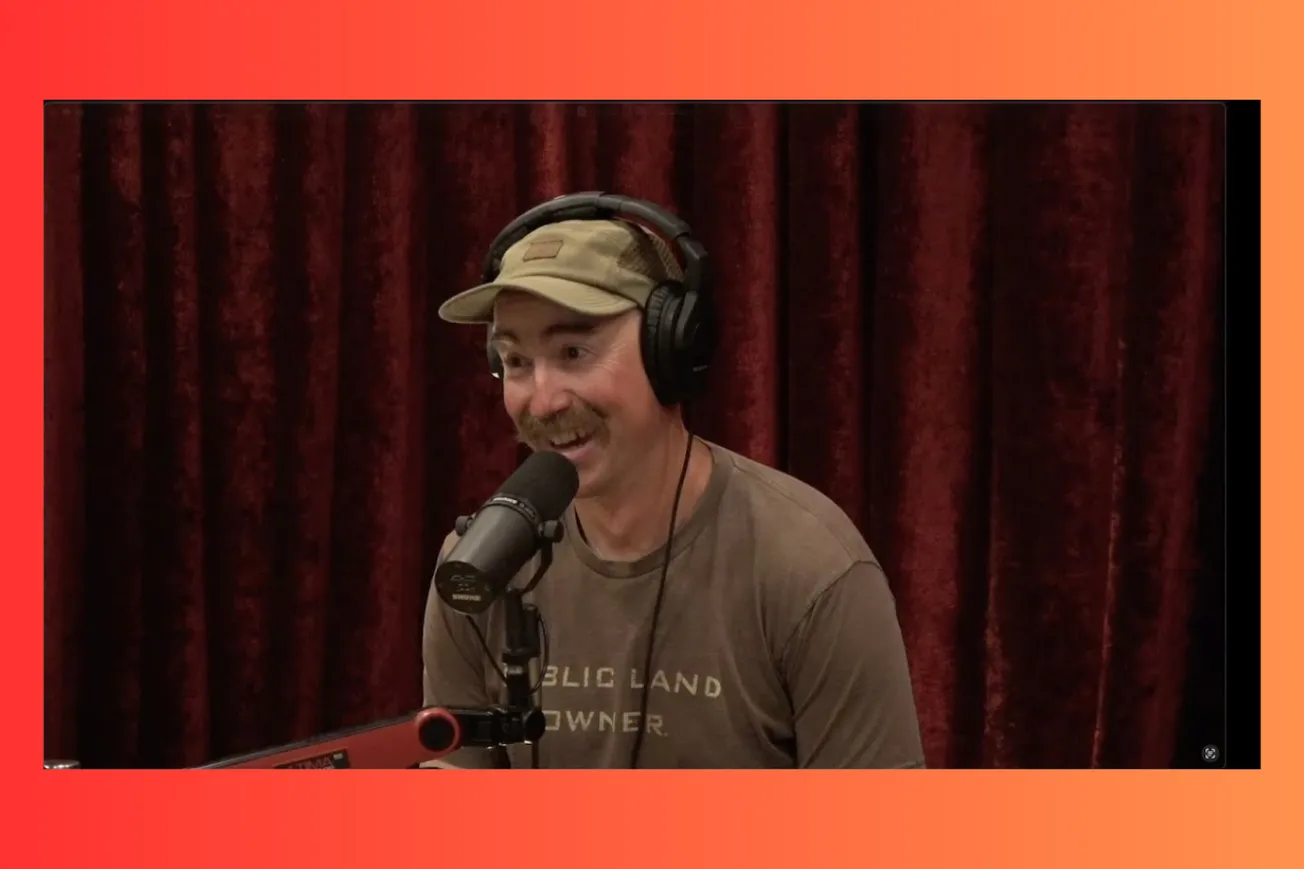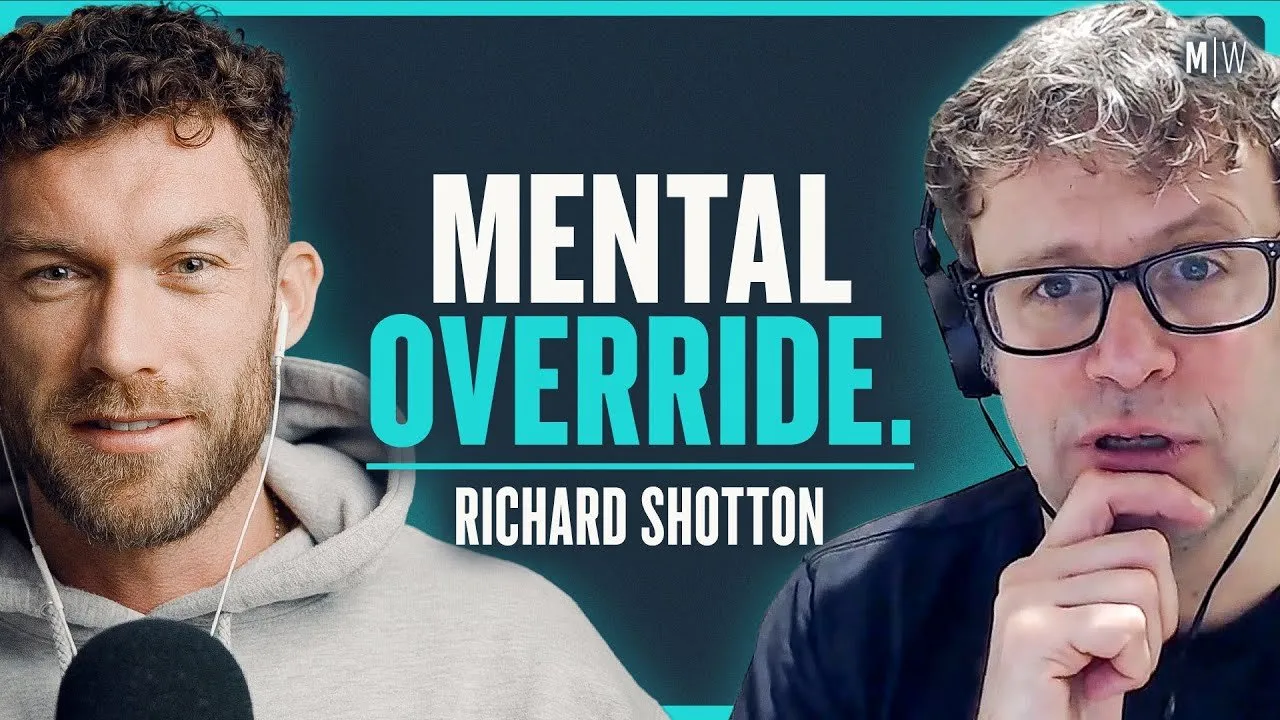Table of Contents
James McCann delivers unfiltered observations on cultural differences between Australia and America, from comedy development to conspiracy theories, revealing why comedians are fleeing Australia for American opportunities.
Key Takeaways
- Australia has the highest per capita gambling losses in the world, beating even Singapore and other Asian countries
- Melbourne endured a brutal 300-day COVID lockdown while Adelaide remained one of the few places comedians could perform
- American construction regulations balance safety with freedom, unlike Australia's extreme over-regulation that prevents affordable housing
- The Comedy Mothership represents one of only three cities in America where comedians can reliably develop their craft
- Australia's cultural motto "pull your head in" promotes conformity over the American "don't tread on me" mentality
- Raw milk consumption led to McCann developing lactose intolerance, possibly from his body preferring unpasteurized dairy
- Corner crossing legal victories opened millions of acres of previously landlocked public land to American hunters
- Conspiracy theories from JFK assassination to HIV/AIDS origins reveal patterns of government deception across decades
- Australian wildlife poses unique dangers with saltwater crocodiles killing someone every three months in North Queensland
- Immigration pathways need reform but require proper vetting to distinguish between hardworking families and criminal cartels
The Comedy Development Crisis Driving Australian Exodus
Australia's comedy scene faces an unprecedented talent drain as performers flee to America seeking opportunities that simply don't exist in their homeland. James McCann's journey from Melbourne club bans to Austin success illustrates a broader crisis where regulatory overreach and limited venues strangle artistic development. This exodus represents more than individual career moves - it signals the collapse of Australia's cultural institutions under bureaucratic weight.
- The Comedy Mothership represents one of only three American cities where comedians can reliably develop their craft, compared to Australia's five total clubs across an entire continent. McCann explains, "There's five clubs and once you've done two of them you got nothing. So every you have to have a new hour every year." This scarcity forces performers into repetitive festival circuits rather than allowing organic growth.
- Australian comedy festivals demand themed shows focusing on trauma rather than pure humor, creating what McCann calls "I got raped shows" or "Dad's Got Cancer" performances. This spoken-word approach prioritizes emotional manipulation over comedic skill, producing entertainers who lack fundamental joke-writing abilities essential for international success.
- Work ethic differences become stark when comparing daily American club opportunities to monthly Australian performances. McCann admits, "Before I came to America, I would do like I would do an hour a month and be very happy with that. And I thought this was enough to get me where I needed to go." The American system demands nightly improvement and constant stage time.
- The cultural shift from individual achievement to collective conformity manifests in Australia's "pull your head in" mentality versus America's "don't tread on me" philosophy. This fundamental difference shapes everything from artistic expression to business development, with Australian systems actively discouraging the ambition necessary for creative breakthrough.
- Financial realities make American comedy more sustainable despite higher living costs, with McCann noting eggs cost $14 per dozen in Australia compared to $3.70 in Texas. When basic necessities cost four times more while entertainment opportunities remain scarce, artistic careers become economically impossible for most performers.
- Regulatory capture affects comedy clubs just as severely as other industries, with licensing requirements and compliance costs making independent venue operation nearly impossible. The same bureaucratic strangling that prevents housing construction also eliminates spaces where new comedians could develop their skills naturally.
Australia's Regulatory Stranglehold vs American Innovation
The fundamental philosophical divide between Australian control culture and American freedom philosophy manifests most clearly in regulatory approaches to daily life. McCann's observations reveal how bureaucratic overreach creates the opposite of its intended effects, driving up costs while reducing safety and innovation. This regulatory capture serves established interests while crushing entrepreneurial opportunities essential for societal progress.
- Housing affordability demonstrates regulatory failure at its most destructive, with Australia's median house price reaching one million dollars despite abundant land availability. McCann suggests, "You should just be able to like whip up a slum with your bros. You go to a valley where no one is. You all live in a that would be better to some extent rather than like renting in a horrible thing forever."
- Speed enforcement reveals priorities focused on revenue generation rather than safety, with McCann noting, "We have cameras every you can't if you go one two miles over the speed limit in Australia, you get a fine. They've recorded you." This contrasts sharply with American highways where adhering strictly to speed limits creates more danger than flowing with traffic.
- Building codes designed by corporate interests prevent affordable construction while claiming safety justifications. McCann observes buildings that "are perfectly safe that wouldn't pass code if they were built today. You couldn't build them again," highlighting how regulations evolve to benefit established contractors rather than serve public welfare.
- Professional licensing extends to absurd extremes, with hairdressing requiring certification despite centuries of successful informal training. These barriers protect incumbent businesses while preventing entrepreneurial entry, creating artificial scarcity that drives up consumer costs without meaningful safety benefits.
- The COVID response illustrated regulatory philosophy differences most starkly, with Melbourne enduring 300-day lockdowns while American states maintained relative freedom. McCann describes concentration camps where "we concentrated people. I don't know what else you meant to call that," showing how emergency powers become permanent control mechanisms.
- American federalism allows regulatory competition between states, enabling citizens to vote with their feet when policies become oppressive. Australia's centralized system provides no escape from bureaucratic overreach, forcing talented individuals to emigrate entirely rather than relocate domestically.
Cultural Conspiracy Patterns and Information Control
Deep dives into controversial topics reveal consistent patterns of information manipulation across decades, from JFK assassination cover-ups to HIV/AIDS research suppression. McCann's willingness to explore these subjects demonstrates the intellectual freedom that American platforms provide compared to Australia's increasingly restrictive discourse environment. These discussions illuminate how institutional capture operates across multiple domains.
- The JFK assassination's magic bullet theory represents impossible physics, with McCann noting, "More bullet fragments were in Connally's wrist than were missing from the bullet. That bullet supposedly went through two different people, shattered bone on both of them." The pristine bullet found on the hospital gurney defies basic ballistics understanding yet remains official orthodoxy.
- Dorothy Kilgallen's suspicious death following her exclusive Jack Ruby interview shows how journalists investigating official narratives face elimination. Found "with files missing by her hairdresser in a bedroom she never slept in, dressed in clothes she would never wear to bed, reading a book she had finished and disliked," her death silenced the only reporter who successfully interviewed Ruby.
- HIV/AIDS research suppression involves Peter Duesberg, a tenured Berkeley professor whose alternative theories about drug-induced immunosuppression were systematically ignored. His assertion that "HIV is a weak virus" and that babies born HIV-positive become negative without treatment challenges pharmaceutical profit models built on permanent medication regimens.
- The pattern extends to contemporary issues, with myocarditis research manipulation involving troponin level measurements rather than actual heart damage assessment. Dr. Mahatra's explanation that "they were measuring what happens when you get sick and that those levels are higher in a viral infection" rather than true cardiac injury reveals ongoing statistical manipulation.
- Conspiracy theories prove accurate when governments admit involvement, as with Israeli operations using fake phone calls to eliminate Iranian generals. McCann notes, "They made a fake phone call to all these military leaders and said everybody's got to meet at the bunker and then they blew the bunker up," showing how "conspiracy" becomes "acknowledgment" when convenient.
- Information control operates through social media manipulation, with estimates suggesting 80% of Twitter accounts are bots. This artificial consensus creation makes genuine public opinion impossible to gauge while providing cover for unpopular policies presented as having widespread support.
Australian Wildlife Dangers vs American Outdoor Freedom
The stark contrast between Australia's deadly fauna and America's manageable wildlife threats illustrates broader philosophical differences about risk tolerance and personal responsibility. While Americans can enjoy outdoor recreation with reasonable precautions, Australians must avoid entire regions of their country due to apex predators that view humans as prey. This dynamic shapes national character and individual freedom in profound ways.
- Saltwater crocodiles represent the ultimate apex predator, with North Queensland experiencing one death every three months according to politician Bob Katter. McCann confirms, "Four deaths since 2020 and nine non-fatal attacks," though notes "that's not three. That's not like what he was saying," suggesting the actual rate may be declining from historical levels.
- The "cage of death" tourist attraction demonstrates Australian acceptance of mortal danger as entertainment, allowing visitors to enter reinforced cages while massive crocodiles attempt entry. McCann's horror at this concept - "What is wrong with people?" - reveals how normalized extreme risk has become in Australian culture.
- Tasmanian devils suffer from transmissible facial cancer spread through biting, with the disease being "almost universally fatal" and causing "large disfiguring masses." This biological nightmare, unnoticed until the 1990s, suggests environmental factors potentially related to human intervention in fragile ecosystems.
- American wildlife management allows coexistence through proper precautions, with bear spray and trail awareness enabling safe backcountry recreation. McCann's surprise that "You shouldn't go off trail for sure" represents reasonable risk mitigation rather than complete area avoidance required in crocodile territory.
- The philosophical difference extends to wildlife reintroduction, with Colorado's wolf program moving cattle-killing predators between locations rather than addressing behavioral problems. This bureaucratic incompetence contrasts with Australia's pragmatic approach to managing dangerous species through controlled culling.
- Kangaroo overpopulation requires helicopter culling programs, demonstrating how apex predator removal creates ecological imbalances requiring human intervention. Without natural population controls, herbivore numbers explode beyond sustainable levels, necessitating systematic reduction through aerial hunting operations.
Immigration Reality and Border Policy Balance
Direct observations of immigration patterns reveal the complexity of border policy beyond partisan talking points. McCann's Home Depot experiences illustrate both the reality of illegal immigration and the hardworking character of many border crossers. Practical solutions require acknowledging both humanitarian needs and security concerns while rejecting extremes from both political directions.
- The Home Depot phenomenon represents visible evidence of immigration scale, with McCann describing "150 guys just out there" seeking day labor opportunities. This concentration of workers willing to perform manual labor demonstrates both economic demand and supply created by immigration patterns regardless of legal status.
- Cultural integration efforts appear genuine among many workers, with McCann noting "a lot of them wearing like pro-American gear, like big American hats and bald eagle shirts." This patriotic display suggests desire for belonging rather than cultural displacement, contrasting with narratives about foreign invasion or cultural destruction.
- Practical solutions require balancing security with humanity, acknowledging that "a lot of those people are good people. Good people. Hard workers" while maintaining "Let's make sure that they're not cartel members and criminals and murderers. That seems easy." This common-sense approach avoids both open borders and mass deportation extremes.
- Congressional representation distortion occurs regardless of voting rights, since population determines seat allocation "regardless of whether that population is legal or illegal." This structural issue affects political power distribution independently of election integrity concerns, creating perverse incentives for demographic manipulation.
- The pathway to citizenship problem affects both security and economic efficiency, trapping productive workers in shadow economies while preventing proper background screening. Current systems serve neither humanitarian goals nor security interests, benefiting only employers who exploit undocumented status for wage suppression.
- South African farmer persecution presents a contrasting immigration case, with documented violence against agricultural producers creating legitimate refugee claims. The "kill the boer, kill the farmer" rallies represent systematic persecution that should qualify for asylum consideration under international law.
America's 640 million acres of public lands survived their greatest threat in decades through unprecedented citizen mobilization across party lines, while Australia's regulatory stranglehold drives talented individuals to American shores seeking the freedom to innovate, create, and thrive. The contrast between Australian conformity culture and American individual liberty continues shaping global migration patterns as entrepreneurs and artists vote with their feet for societies that reward rather than punish ambition and creative expression.





![This New Bitget Platform Changes the Game [Literally Gold]](/content/images/size/w1304/format/webp/2026/02/bitget-launches-universal-exchange-gold-usdt.jpg)